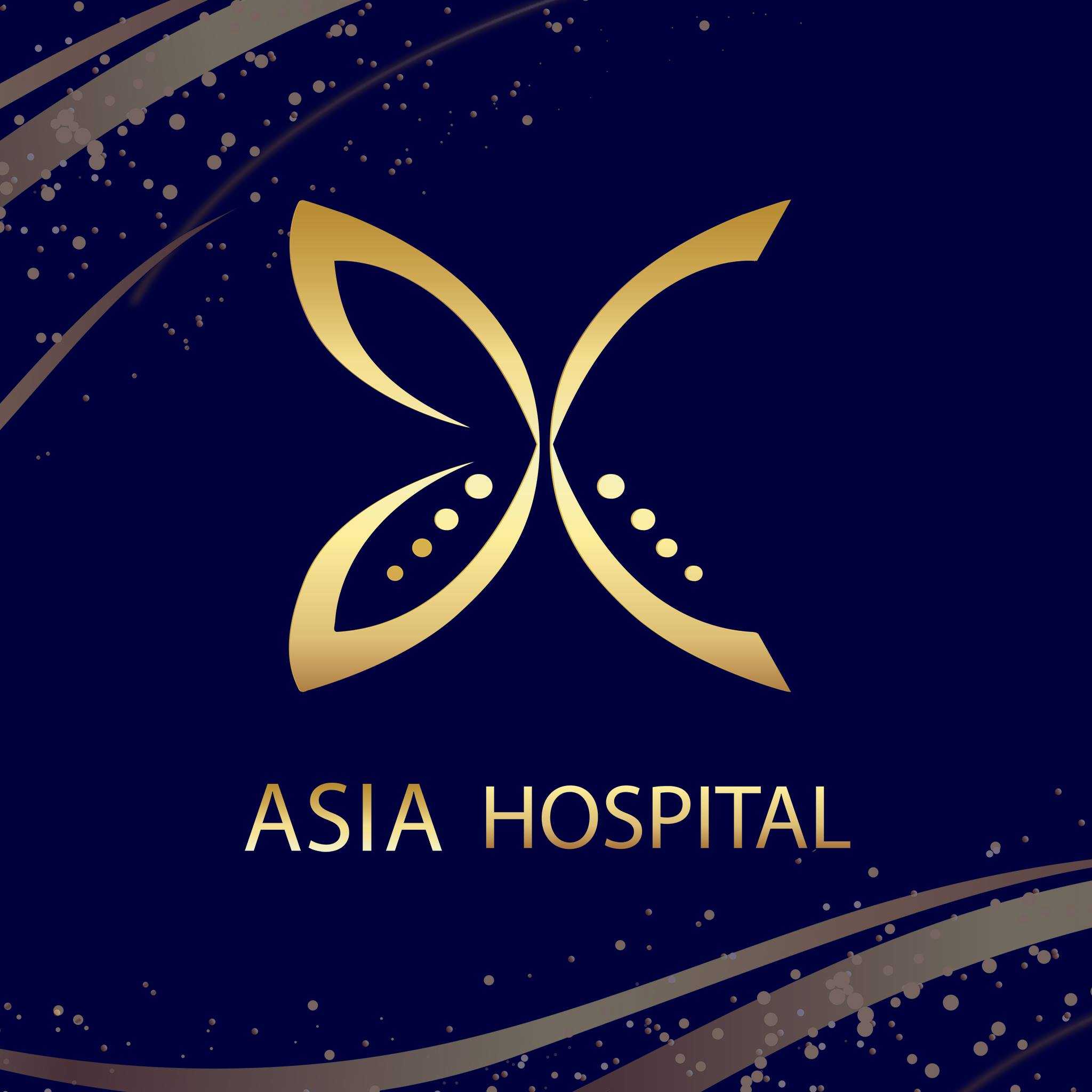Documentation Needed for FTM Top Surgery in Thailand
.jpg)
Undergoing FTM (Female-to-Male) top surgery is a significant step in a transgender person's transition journey, helping to align one's physical appearance with their gender identity.
Thailand has emerged as a leading destination for gender-affirming surgeries, drawing international patients due to its renowned surgeons, state-of-the-art facilities, and competitive pricing. Many individuals are curious about what it takes to access this life-changing procedure in a country known for its medical expertise.
Navigating the requirements for FTM top surgery can feel complex, especially when planning international medical travel. This comprehensive guide will break down all the essential criteria, from age and medical documentation to mental health evaluations and the practicalities of a medical trip to Thailand.
Our aim is to provide clear, actionable information to help you understand what's needed to pursue top surgery safely and effectively in this popular medical tourism hub.
What are the general eligibility requirements for FTM top surgery in Thailand?
Most reputable clinics and surgeons in Thailand adhere to the World Professional Association for Transgender Health (WPATH) Standards of Care. These guidelines are widely accepted internationally and help ensure ethical and safe practices for gender-affirming care. For FTM top surgery, this usually means a person must be at least 18 years old to give informed consent for surgery.
Beyond age, a diagnosis of persistent and well-documented gender dysphoria is a key requirement. This diagnosis should typically come from a qualified mental health professional. While not always strictly mandatory, some surgeons may prefer that patients have lived in their affirmed gender role for some time, often referred to as "real-life experience," though this is becoming less common as an explicit requirement for top surgery compared to genital surgeries.
Do I need a referral letter for FTM top surgery in Thailand?
Referral letters are a crucial part of the FTM top surgery requirements. These letters serve to confirm a diagnosis of gender dysphoria and assess a patient's readiness for surgery. Typically, you will need a letter from a licensed mental health professional, such as a psychiatrist, psychologist, or therapist, who has experience working with transgender individuals. This letter should affirm that you meet the criteria for gender dysphoria and are psychologically prepared for the procedure.
Some surgeons or clinics may request a second letter, especially if you have not been on hormone therapy or if there are complex medical or psychological considerations. If you are currently undergoing hormone therapy (testosterone), a letter from your endocrinologist or prescribing physician confirming your hormone regimen and overall health is also often beneficial, though typically not a primary referral letter for the surgery itself. These letters help the surgical team understand your journey and ensure appropriate care.
What documentation is required for FTM top surgery in Thailand as an international patient?
As an international patient traveling for FTM top surgery, thorough documentation is essential. Your passport must be valid for at least six months beyond your intended stay in Thailand. Depending on your nationality, you may also need to obtain a medical visa or a visa on arrival; checking current Thai immigration policies for your country is highly recommended.
Beyond travel documents, you will need to compile your medical history. This includes:
- Your FTM top surgery referral letters from mental health professionals.
- Recent blood test results and other relevant diagnostic reports.
- A list of all current medications and any known allergies.
- Documentation of any prior surgeries or significant medical conditions.
- Photographs of your chest may be requested by the surgeon for pre-operative assessment.
It is wise to have both physical and digital copies of all your documents, and to communicate directly with your chosen clinic regarding their specific documentation requirements well in advance of your travel dates.
Is hormone therapy (testosterone) mandatory before FTM top surgery in Thailand?
The requirement for hormone therapy (testosterone) before FTM top surgery can vary among surgeons and clinics in Thailand. For most, it is not an absolute prerequisite. However, many surgeons prefer patients to have been on testosterone for at least 6-12 months prior to surgery. This preference stems from several potential benefits that testosterone therapy can offer.
Testosterone can contribute to chest wall muscle development and fat redistribution, which can potentially lead to better surgical contours and a more masculine chest appearance post-surgery. It may also help to reduce the overall density of breast tissue in some individuals, making the surgical process more straightforward.
Ultimately, the decision of whether to undergo top surgery without prior hormone therapy will be made in consultation with your surgeon, considering your individual anatomy and goals.
What is the typical age requirement for FTM top surgery in Thailand?
In Thailand, similar to many other countries, the legal age for consenting to major medical procedures like FTM top surgery is typically 18 years. This ensures that patients are adults who can fully understand the implications of the surgery and provide informed consent without needing parental or guardian approval. Most reputable clinics and surgeons will strictly adhere to this age limit.
While some countries may have pathways for minors to undergo certain gender-affirming procedures with parental consent and extensive psychological evaluation, this is generally not the case for FTM top surgery in Thailand for international patients. The focus is on ensuring the patient is an adult who is mature, has a clear understanding of the procedure, and has the capacity to make such a significant decision independently.
How long should I plan to stay in Thailand for FTM top surgery?
A typical FTM top surgery trip to Thailand requires careful planning for your stay. You should anticipate arriving a few days before your scheduled surgery for initial consultations, medical evaluations, and to settle in. The surgery itself usually involves a one or two-night stay in the hospital, depending on the procedure and your recovery.
The most critical part of your stay post-surgery involves regular follow-up appointments with your surgeon. These appointments are essential for drain removal (if applicable), wound checks, and ensuring proper healing. Most surgeons require you to stay in Thailand for at least 10-14 days after your surgery to monitor your initial recovery, address any immediate concerns, and provide clearance for safe travel back home. A total stay of 2 to 3 weeks is a realistic and recommended timeframe for a smooth experience.
What is the average cost of FTM top surgery in Thailand, and what does it include?
One of the main reasons many individuals consider FTM top surgery in Thailand is the significantly lower cost compared to Western countries, without compromising on quality of care. The price can vary depending on the surgeon's experience, the specific surgical technique used, and the clinic's facilities.
Most packages for FTM top surgery in Thailand are comprehensive and generally include:
- Surgeon's fees
- Anesthesiologist's fees
- Hospital facility fees (including operating room and overnight stay)
- Compression garment
- Initial post-operative follow-up appointments and drain removal
- Nursing care during your hospital stay
It is important to clarify with your chosen clinic exactly what is covered in their quoted price. What is usually not included are:
- Flights and international travel expenses
- Accommodation outside of the hospital stay
- Meals outside of the hospital stay
- Pre-operative medical tests (though some clinics may include these)
- Medications prescribed for post-operative recovery
- Travel insurance or medical complications insurance
- Additional costs for extended stays or unexpected complications
How do I choose a reputable surgeon and clinic for FTM top surgery in Thailand?
Selecting the right surgeon and clinic is paramount for a successful FTM top surgery outcome. Begin by researching surgeons who specialize in gender-affirming surgeries, specifically FTM top surgery. Look for evidence of their expertise, such as certifications from relevant surgical boards, years of experience, and the number of FTM top surgeries they have performed.
Reviewing before-and-after photos of previous patients can give you an idea of a surgeon's aesthetic style and typical results. Patient testimonials and reviews on independent forums and websites are also valuable. Ensure the clinic itself is accredited by recognized international bodies, which speaks to their safety and quality standards. Good communication with the clinic's international patient coordinator, including clear explanations of the process and costs, is another strong indicator of a reputable provider.
What are the common types of FTM top surgery procedures offered in Thailand?
Thai surgeons offer various techniques for FTM top surgery, tailored to individual patient anatomy and goals. The choice of procedure primarily depends on chest size, skin elasticity, and desired nipple placement.
The most common techniques include:
- Double Incision with Nipple Grafts: This is suitable for individuals with larger chests. It involves two horizontal incisions across the chest, allowing for significant tissue removal and chest contouring. The nipples and areolas are removed, resized, and grafted back onto the chest in a masculine position. This technique offers the flattest result but leaves noticeable scars.
- Peri-areolar (Keyhole): Ideal for patients with smaller chests, good skin elasticity, and minimal breast tissue. An incision is made around the areola, through which tissue is removed. The nipple and areola remain attached, preserving sensation. Scars are minimal, but not all chest sizes are suitable for this method.
- Inverted T or Fishmouth: Less common, these techniques are variations that can offer good results for moderate chest sizes, often allowing for some nipple pedicle preservation while still achieving significant chest flattening. They may result in a scar resembling an inverted T shape or two curved incisions.
Your surgeon will discuss which technique is best suited for your body during the consultation.
What are the risks associated with FTM top surgery, and how are they managed in Thailand?
Like any surgical procedure, FTM top surgery carries potential risks, though serious complications are relatively rare. Reputable clinics in Thailand take extensive measures to minimize these risks and manage any issues that arise.
Common potential risks include:
- Infection: Managed by prescribing antibiotics, maintaining sterile environments, and advising on proper wound care.
- Hematoma (blood collection): Prevented through careful surgical technique and managed by drains or, in rare cases, surgical intervention.
- Seroma (fluid collection): Addressed by using drains, wearing compression garments, and potentially aspiration if persistent.
- Nipple Complications: Such as loss of nipple grafts, asymmetry, or reduced sensation. Surgeons employ precise grafting techniques and provide detailed aftercare instructions to optimize graft survival and appearance.
- Scarring: All techniques leave scars. Surgeons aim for discreet placement, and patients are given guidance on scar care to promote optimal healing.
- Anesthesia risks: Standard risks associated with general anesthesia, carefully monitored by qualified anesthesiologists.
Thai clinics prioritize patient safety and adhere to international medical standards. They provide thorough pre-operative assessments to identify and mitigate risks, detailed post-operative care instructions, and readily available medical staff to address any concerns during your recovery period in Thailand.
Considering FTM top surgery in Thailand? Explore your options and connect with trusted clinics through PlacidWay. Visit PlacidWay for comprehensive solutions related to medical tourism and healthcare services.


.png)




.png)
.png)








Share this listing